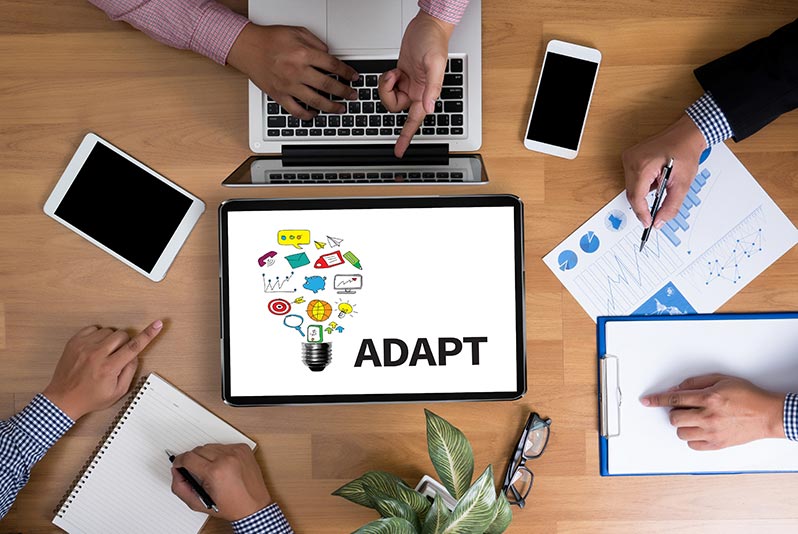Our world of work has changed fundamentally after the pandemic. Lockdowns and restrictions forced many companies to adapt different ways of doing things. Employees have also changed their way of viewing their tasks, job descriptions and position in the workplace. Some temporary measures that company owners took during the lockdown, now became a permanent change in the company.
According to research done across the world and locally, we can expect to see some real changes of the work environment in the year of 2022.
- Fairness and equity will be the defining issues for organisations.
S&P 500 earnings calls have shown that the frequency with which CEOs talk about issues of equity, fairness and inclusion on these calls has increased by 658% since 2018.
The number one priority for companies will be to manage fairness and equity across their various employees.
According to the Sage Payroll and HR in SA: “Rising to the challenges of change research report, 73% of SMEs are deliberately catering to the needs of Gen Z, while 31% are focusing on concerns of the LGBTQ+ community and the impact of social movements on the workplace. As the removal of geographical constraints opens up the talent pool, HR needs to be more mindful of maintaining equity in their workforce.”
- To compete in the war for knowledge worker talent, companies will need to adapt their perks.
With a workforce mainly comprising Millennials and Gen Z, companies’ benefit packages have had to be overhauled to attract top talent. Research has shown that 60% of Gen Z and 65% of Millennials want benefits that will help them succeed professionally, financially, and personally. While the basic traditional benefits are still valued, the younger employee requires more individualised benefits and places value on flexibility, learning, support, and purpose.
- Companies should consider adopting flexible working hours or an output-driven working model to meet the workforce’s changing needs and positively influence job performance.
Companies started to focus on an output-based working model instead of the typical staff requirement to be productive during office hours.
And as remote work becomes the norm for many businesses across the globe, the 9-5 workday is being replaced by flexible working hours, with performance being measured against output or specific KPIs. Research has shown that up to 70% of employees currently work on their tasks outside regular office hours, which has resulted in greater productivity and an improved work-life balance.
- Increased employee turnover will continue as hybrid and remote work become the norm for knowledge workers.
Employers that don’t offer flexibility will see increased turnover as employees move to roles that offer a value proposition that better aligns with their desires.
Since there are little social and emotional connections with co-workers in a remote or hybrid working situation and thus not the social pressure to stay at a company, employees will quit their jobs more easily. Furthermore, the option of more potential employers increases for remote workers since the geographical radius of potential employers, expand.
- Managerial tasks will become an automated process and the role of the manager will change to building more human relationships with the employees.
During the lockdown period where employees were forced to work away from the primary office, most companies developed products (or use existing software and applications not previously utilised) to assist with repeatable managerial tasks, such as scheduling, approving expense reports, and monitoring direct reports’ completion of tasks. The next generation of technology will start to replace additional managerial tasks, such as providing performance feedback and supporting employees in building new peer-to-peer connections.
Also, the tools that we developed to use (or introduced) to work remotely will become the tools that help measure and improve performance which will further lighten the tasks of the managers.
It is clear to see that the role of the manager will change considerably in the near future and even the number of managers required within a company.
- Companies will need to revamp their existing training practices to teach employees new skills more efficiently.
Virtual learning will be used in training remote workforce, while on-the-job training will be the primary source of development for contract workers. Regardless of the training requirement, companies will need to find an inclusive, equitable way to deliver it.
- Wellness will become the newest metric that companies use to understand their employees.
Metrics previously used to understand their employees were employee satisfaction or engagement metrics. In 2022, organisations will add in new measures that assess their mental, physical, and financial health.
- The future is freelance.
In 2019, 34% of the South African working population was freelancing, and experts believe this number could rise to 50% this year. The pandemic and the resultant move to remote work has opened up access to global skills, allowing companies to recruit contingency workers for a limited period or to work on specific projects, effectively reducing the need for permanent employees and resulting in cost savings.
The ever-growing Millennial workforce is more interested in exploring new roles, taking on exciting challenges, experiencing different company cultures, and learning new skills while they’re at it. They are no longer incentivised by job security or benefits but look for jobs that offer flexibility, greater growth opportunities, and a sense of purpose.
As we enter another year of uncertainty around the pandemic and possible lockdown regulations, there is no doubt that there will be more changes taking place in the working environment as we used to know it. It is up to company owners to be able to quickly spot changes in the needs of employees and how they can be supported if they wish to retain the talent they require.

